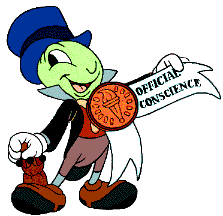
Less Than $13k To Go!!
Just A Reminder
Please Don't Forget
To Donate To FR

Posted on 05/08/2011 7:31:10 PM PDT by stfassisi
There are three ways in which a man becomes a slave. He may be born into slavery, or forced into it, or he can deliberately accept his servitude. All three forms flourish in the modern world. Men are born and forced into slavery in Russia and her satellites states. Men in the free world invite slavery when they ask the government to provide complete security, when they surrender their freedom to the “Welfare State.”
The slave states of Western world are an outgrowth of monopolistic capitalism—an economic system which is opposed to the wide distribution of private property in many hands. Instead, monopolistic capitalism concentrates productive wealth among a few men, allowing the rest to become a vast proletariat.
Some representatives of monopolistic capitalism, sensing this evil in their system, have tried to silence criticism by pointing to the diffused ownership in the great corporations. They advertise, “No one owns more than 4 percent of the stock of this great company.” Or they print lists of stockholders, showing that these include farmers, schoolteachers, baseball players, taxi drivers, and even babies. But there is a catch to this argument, and it is this: although it is true that individuals of small means own shares in the company, it is not true that they run the company. Their responsibility for its policies is nil.Possession properly has two faces, two aspects: we all have a right to private property, but this is accompanied by our responsibility for its righteous use. These two things (which should be inseparable) are frequently divided today. Everyone admits that the farmer who owns a horse is obligated to feed and care for it, but in the case of stocks and bonds, we often forget that the same principle should prevail.
Monopolistic capitalism is to blame for this; it sunders the right to own property from responsibility that owning property involves. Those who own only a few stocks have no practical control of any industry. They vote by postcard proxy, but they have rarely even seen “their” company. The two elements which ought to be inextricably joined in any true conception of private property -- ownership and responsibility -- are separated. Those who own do not manage; those who manage; those who manage and work do not control or own.
The workmen in a factory may have a shadowy, unknown absentee “employer” – the thousands of individual owners of stock – whom “management” represents and tries to please by extra dividends. The workman’s livelihood is at the disposition of strangers who make a single demand of their representatives: higher profits.
Faced with such insecurity, labor unions seek a solution in demands for higher wages, shorter hours, pensions, and such things. But this approach takes monopolistic capitalism for granted, and accepts the unnatural division between property and responsibility as permanent. A much more radical solution is apt to come, and this may take either of two forms. One way of remedying the situation would be through a profound alternative of our political and economic life, with the aim of distributing the means of production more widely by giving every workman a share in profits, management, and ownership, all three. The other alternative which is not a constructive solution is confiscation: this may take the violent form of communism, or the less noticeable form of bureaucratic encroachment through taxation, as favored by the welfare state. It amounts to telling men that because they are economically crippled, they must abandon all efforts to get well and allow the state to provide them with free wheelchairs.
The denial of the right of ownership to a man is a denial of his basic freedom: freedom without property is always incomplete. To be “secured” – but with no accompanying responsibility – is to be the slave of whatever group provides the security.
A democracy flirts with the danger of becoming a slave in direct ratio to the numbers of its citizens who work, but do not own / or who own, but do not work; or who distribute, as politicians do, but do not produce. The danger of the “slave state” disappears in ratio to the numbers of people who own property and admit its attendant responsibilities under God. They can call their souls their own because they own and administer something other than their souls. Thus they are free.
Beautiful!!!
distributism
Freep-mail me to get on or off my pro-life and Catholic List:
Please ping me to note-worthy Pro-Life or Catholic threads, or other threads of general interest.

Silly article. Bishop Sheen does not say this is forced and the Natural law is Charity,which of course,Bishop Sheen agrees with
No different than the Mercantilism of the British Empire, or the Fascism of Musolini's Italy; government-private partnership. A wise economist (Friedman?) stated that monopoly can only exist by government enfranchisement (not always a bad thing). In the modern era, monopoly has been given over to cartel. Money controls government, and government power protects money (not always a bad thing).
From the Silly Article: "...as the stockholder who invests his money in a corporation shares the profit the business makes, so also the worker, who gives his labor and time, must also share that profit." Should they also be prepared to share the loss? Most businesses, after start-up, fail.
You're entitled to your opinion,dear friend.
Problem is that power in the hand of a few will end up corrupt and selfish if not grounded in love of fellow man.
Disclaimer: Opinions posted on Free Republic are those of the individual posters and do not necessarily represent the opinion of Free Republic or its management. All materials posted herein are protected by copyright law and the exemption for fair use of copyrighted works.